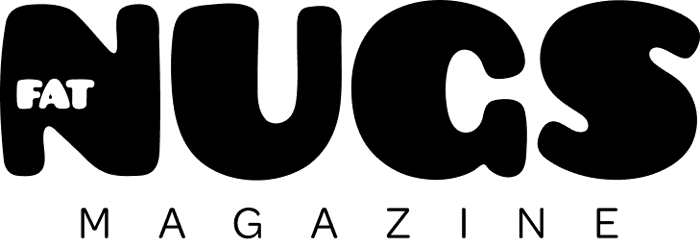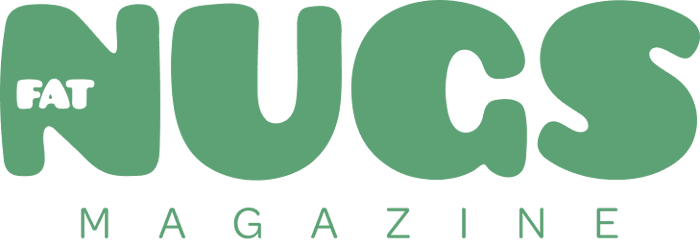John Michael Mead always wanted to help people. His initial career path was laid with bricks of conventional aspirations. Like his grandfather, John wanted to be a pharmacist. Cannabis wasn’t on his radar. Wasn’t even something he had tried yet.
But John became disillusioned with Pharma. The predatory and callous nature of the business soured him. He was even let go from a pharmacy job following a bit of job-ending compassion. An elderly couple had run into some trouble. A breakdown followed. Heart medication wasn’t covered by insurance. They were unable to pay for it out of pocket. John helped the couple and was summarily let go.
After two years of waning interest, pharmacy school was dropped. Humboldt State University was in. John decided to study biology, choosing a major his father had pursued. John felt the major would also suit him.
A New Vocation, New Dangers
Unbeknownst to John at the time, Humboldt County is a mecca of sorts for cannabis. Ironically enough, John smoked his first joint just entering HSU. Unfortunately, his new start coincided with his grandfather falling ill in Tuscon. To help his ailing relative, John started going to various farms, learning how to make bubble hash. The bubble hash was turned into tinctures for his grandfather.
He was “adopted” by a farm in the hills, and his second education began: cannabis cultivation.
Cannabis cultivation was studied in the summers, and he went to school-school when he could. The difference couldn’t be more stark: from the banality of lecture halls to living in tents in the woods. Gathering water from creeks and wearing camouflage to avoid authorities.
As he learned the ins and outs of cannabis cultivation, John was also exposed to the inherent risks. He got ripped off, more from “friends” than strangers. He had to hide from helicopters—the heavy sound of a rotor’s blades throwing John and his fellow workers into a state of panic. Unpredictable weather was a constant source of anxiety. Never knowing what conditions awaited, rain, drought, or frost exacting their toll on the plants.
“You haven’t been on the brink of insanity until you’ve watched metric tons of cannabis mold on the vine.”
He would have bouts of PTSD from constantly having to dodge the authorities, especially airborne ones. But he continued to work and learn.
“The profession has been a glass house of emotions when it comes to cannabis from [when I started] and now. Not just lower prices and oversaturated markets but the entire vibe. It became a different kind of cutthroat environment. The difference is white collar and blue collar, I suppose.”
His early pharmacy dreams faded further and further in the rearview as John flourished in his new career. A lab-based garage was started after only a year. A few years after that, he learned to cultivate. He was eventually able to pay for a 40-acre property with a friend. A medical operation was opened on the Humboldt/Trinity County border in Northern California. But despite all this success, disaster waited patiently just around the corner.
Incarceration and Trauma, Trauma and Freedom
In 2021, John was arrested when police discovered a trash bag full of trim (byproducts of cannabis, including sticks and fan leaves) in the back of his truck. The bag was mixed with other garbage John had intended to dispose of.
A legal battle with Maricopa County ensued, culminating in John being locked up for nine months, seven of which he says he wasn’t able to see a lawyer. He eventually took a plea deal just to escape confinement.
“I sat in jail for marijuana for sale, which was not for sale; [also] my cultivation license allowed me 144 plants. I watched people who committed sex crimes get out within a week with no felonies. It was traumatizing.”
John points out that jails in this county have recently been struck with multiple lawsuits for their ill-treatment of prisoners. But allegations of mistreatment go back nearly 30 years.
“[Officials] would only melt us out for 30 minutes a day from our 6×10 cells maybe twice a week if we were lucky. Sometimes [we went] three weeks without leaving the 6×10. Never got the inhaler I need for my asthma for the entire nine months there.”
During this time, John says he never saw the sun. Showers were infrequently available. The times they were available, time constraints prevented their use. As he languished in jail, John says he was fed through a slot and suffered multiple asthma attacks. An interminable period that amounted to solitary confinement as the jail was so overcrowded prisoners were rarely allowed to leave their cells. For context, the Geneva Convention outlawed solitary confinement for captured soldiers in 1950.
John’s incarceration unfortunately coincided with the COVID-19 pandemic, which only exacerbated his already fragile mental health. He would contract the virus and ultimately run a temperature of 104.
Since getting out of jail in 2023, John has suffered from PTSD anew. Nightmares return him again and again to his time behind bars, routinely waking him up in a sweat-drenched terror. He briefly turned to alcohol as a form of self-medication.
At one point, John became so overwhelmed that returning to jail seemed like a comforting alternative, even as he knew he never wanted to be incarcerated again.
“Am I the same? No. And I have just come to peace that I never will [be]. Time heals most stuff. At least a little bit. But the scars are there for sure. Mentally, physically, and fiscally.”
The stigma of incarceration weighs heavily on John. He never thought he would have to contend with having a criminal record.
Lessons and Reflection
Despite his ordeal, John is doing his best to move forward. He’s pursuing therapy and attempting to expunge his record. Career-wise, John has resumed his consulting career rather than running his own operations, as the incarceration depleted his funds and his criminal record makes running an operation prohibitive.
But John is not without many sterling qualities, including a hard-won wisdom. A decade-plus career in cannabis has taught him invaluable lessons, e.g., what he refers to as his “human lie detector ability” to sniff out duplicitous players through their inflection and overall energy they put out. A mechanism partially developed after falling repeatedly for the “Humboldt Hustle,” a scam where someone is tasked with growing cannabis in good faith for an undisclosed amount of time. Compensation is promised, but once the job is done, the client backpedals, claiming there isn’t enough money to go around.
And John is optimistic about the future. He’s confident the market will appreciate someone of his skills and experience, i.e., a legacy grower who cultivates craft cannabis more for the sake of the plant than the money.
“I wish I could tell my younger self to better prepare for downswings in life that are inevitable. And that everything will be ok.”




